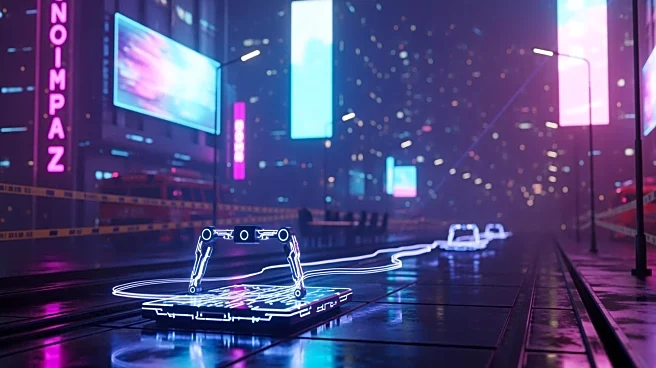What's Happening?
Cinematographer Dan Laustsen has teamed up with director Guillermo del Toro for the Netflix project 'Frankenstein.' The collaboration focuses on creating a film that balances classical aesthetics with modern visuals. Laustsen and del Toro have previously worked together on films like 'Crimson Peak' and 'The Shape of Water,' developing a shared vision for storytelling. For 'Frankenstein,' they utilized the Arri Alexa 65 camera and Leitz Thalia lenses to achieve a large-format look reminiscent of old 70mm films, but with contemporary sharpness. The production emphasizes real elements over CGI, such as using real torches and practical effects for fire scenes, to maintain an organic feel. The film's lighting and color palette are carefully crafted to evoke emotion and continuity across scenes.
Why It's Important?
The collaboration between Laustsen and del Toro on 'Frankenstein' highlights the importance of visual storytelling in modern cinema. By prioritizing realism and emotional depth, the film aims to offer audiences a unique viewing experience that contrasts with the heavy reliance on CGI in contemporary filmmaking. This approach could influence future productions, encouraging filmmakers to explore traditional techniques to enhance narrative authenticity. The project's emphasis on love and forgiveness resonates with current societal themes, potentially impacting audience perceptions and discussions around these topics.
What's Next?
As 'Frankenstein' progresses towards its release, anticipation builds around how audiences will receive the film's unique blend of classical and modern elements. The success of this project could lead to more collaborations between Laustsen and del Toro, further exploring the boundaries of visual storytelling. Additionally, the film's reception may inspire other filmmakers to adopt similar techniques, potentially shifting industry standards towards more organic and emotionally driven productions.
Beyond the Headlines
The decision to use practical effects over CGI in 'Frankenstein' raises questions about the ethical and environmental implications of filmmaking. Practical effects often require more resources and labor, but they can reduce the carbon footprint associated with digital production. This choice reflects a growing trend in the industry to balance technological advancements with sustainable practices. Furthermore, the film's focus on themes of love and forgiveness may contribute to broader cultural conversations about reconciliation and empathy in a divided world.









